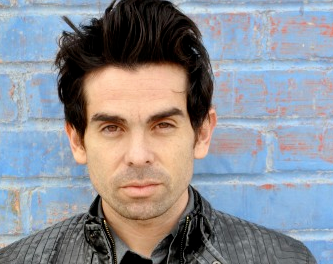Two Words God Didn't Mix Up
- I have a tendency to neglect the power of God's word.
- I have a tendency to neglect the power of God in His word.
- I have a tendency to neglect the necessity of the power of God in His word.
- I have a tendency to neglect the necessary humility of petitioning the power of God when I read His word.
I have no ability to understand a single word of God's written word, unless He by His power and Spirit, makes it alive to my heart and mind. I (we) should bend the knee of our hearts before God in humility every time we open His word, that He would make it alive to us.
Along these same lines, I have a tendency to be selfish when I read His word. Especially when I don't take the time to realize my necessity to beseech His revealing of truth to my heart and mind. This selfishness can often result in searching scripture for what I want to see, rather than what it says.
Example: I'm selfishly discouraged so I look for passages that talk about me getting blessings rather than exposing my selfishness in passages that deal with discipline or sanctification. I'm sinfully judgmental so I look for passages that deal with another person's sin rather than passages that expose my own sin. I take those and I build a case, dodging any reference to dealing with my own sin.
All of that is to just bring up two beautiful passages that may often have been simply glanced over as truth without meditating further on their context and implication. In my own hurry of reading scripture, sometimes, I can miss out on an amazing depth, possibly because I see certain words like "love", "faith", "grace", etc and assume that I understand how they're being used, and to what extent they may be applied.
The following passages run deep with truth that I can't tap, but what I do know is: God didn't mix them up.
First:
2 Corinthians 12:7-10
Paul explains the occurrence when, after having been given great revelations from God, he was given by God a "thorn in the flesh". Many commentators say that verse 7 is talking about a demon that was sent to ravage the church at Corinth. The purpose was to humble Paul.
Now that in itself is enough to dwell on and be amazed! God Himself allowed and ordained a demon to ravage His church SO THAT: Paul would remain humble. But that's not the non-mix-up.
Next passage:
Hebrews 12:5-11
The author explains and exhorts the reader that the discipline of the Lord is for our good. He treats us as sons, and the blessing of discipline from the Lord is that we share His holiness (v10).
Now here's what God didn't get wrong. Here's what God didn't say:
- In a time when God desires to humble us, when He is disciplining us, sometimes with much pain or trial, He doesn't say "My reproving / discipline is sufficient for you." Likewise, He doesn't say "It is for grace / peace that you endure."
Those would make perfect sense. When I endure something, I want it to be for a peaceful or blessed outcome. I'd readily and willingly endure through something knowing it was for peace that I'd endure, or for grace. And to hear a father say that His loving discipline of a trial or hard time is sufficient, I would understand that the trail is a sufficient experience. But that's not what God says. We need to rethink our self-focus when we are under God's sanctifying work on us, and think of Him.
Here's what He says in His word when we are under His humbling, under His disciplining:
2 Cor 12:9 "My grace is sufficient for you"
Heb 12:7 "It is for discipline that you endure"
"Grace" and discipline" were not mixed up. We endure for His discipline. And the trail and humbling pains of what we are receiving IS His grace, which is fully sufficient for us.
How often I selfishly want that to be swapped! I want to endure for grace and peace! I expect Him to call sufficient: His disciplining and humbling! Your grace, God, is what is sufficient? Your painful (Heb 12:11) discipline is grace, Lord? Yes!
When Israel was being ravaged by poisonous serpents in the wilderness in Numbers 21, it was because they were rebellious and necessarily needed to be disciplined to gain the holiness that they were called to. They needed to repent! God sent serpents to show them the deadly result of the poison of their sin and how they needed His cleansing. The people cried out to Moses to beseech God. But what did they ask for? Did they ask for a way to be saved from the deadly serpents? No.
Numbers 21:7 "So the people came to Moses and said, 'We have sinned, because we have spoken against the LORD and you; intercede with the LORD, that He may remove the serpents from us.' "
Lord, remove this trial! Stop the discipline! This hurts! Take away the pain! They didn't ask for a salvation, they just wanted the serpents to be removed. They wanted the trial to be over. Instead, God offered a plan of faith that would save!
I often pray that. I often desire His discipline to stop. I don't see it as His sufficient grace. I don't see that the discipline is what I'm enduring FOR not through! God has other plans than just the temporal discipline. That's not the result; holiness is. He is pruning, sanctifying, building us for our good.
Heb 12:10 "He disciplines us for our good, so that we may share His holiness"
Wow! We share the holiness of God!
Why would I want Him to stop that process? If I am alive in Christ, being transformed into His image, would I deny the process of perfecting that God is desiring to do in me? In fact, that very process is what we often pray for. Would we then, when He faithfully and lovingly as a father brings that to us, say, "Wait! Stop! That doesn't feel good!"
How absurd.
I fail to trust my Lord, to my shame. I fail often, when I'm anxious, when I'm hesitant in gospel boldness, when I focus on myself more than Christ. But He, as a loving Father, prunes me for my good that I would share His holiness. That process IS His sufficient grace. The discipline is what I endure for, which in itself is His grace. The result is His holiness, which is grace abounding all the more.
Pray for me that I don't mix up the words of God. Pray for each other.
Why The Arminian View Of Election Is Incompatible With Scripture
The other view of election says that there are no conditions on which God elects a sinner to salvation. Election is the perogative of God and God's choosing of people for salvation is based on His Sovereign gracious will. He chooses us first and we are the ones who respond to Him. This is the Calvinist view of election. This view upholds the will of God over that of man.
I believe that the Calvinist view is the one that is in line with Scripture and that the Arminian view leaves room for boasting in what man does. According to the Arminian view, election is then based on man's choosing God first, not grace.
Now if you will follow me on this line of thought, I will hopefully explain from one angle why the Arminian view is not compatible with the Scriptural view of election.
In 2 Peter 1:1, Peter writes to those who have "obtained a like precious faith." The word "obtained" means to receive by Divine allotment. In other words, faith is given to people at the discretion of God. To put it in other terms, faith is a gift of God. This is exactly what the Apostle Paul says in Ephesians 2:8-9. Faith is a gift of God so that there is no room for boasting in what man does. If you cannot come to grips with this idea (faith as a gift) then we will not be able to go any further in this line of reasoning. You must be convinced that faith is a gift. 2 Peter says it is. Scripture supports this idea elsewhere as we'll see shortly.
A couple of questions arise at first glance...at least in my head. What is the definition of faith? And how is it given to us...how do we obtain it? Let's first put together a working defintion of faith.
Faith is "the conviction that God exists and is the creator and ruler of all things, the provider and bestower of eternal salvation through Christ. Faith is "a strong conviction or belief that Jesus is the Messiah, through whom we obtain eternal salvation in the kingdom of God." To put it another way: faith is absolute certainty that Christ is Who the Father has revealed Him to be and vice versa. Faith is also confidence in who the Spirit has revealed Father and Son to be through the Scriptures. Faith and trust are often used synomously. When we say that we have faith in Christ, we are saying that we trust Him because He has revealed Himself to be trustworthy. Did you get that last phrase? The reason we trust Christ is because He has revealed Himself to be worthy of trust or faith. Faith then must be instilled in a person as the object of faith proves itself to be worthy of trust. Faith is not blind trust. That is an unbiblical definition of faith. That is the world's definition of faith. No where does God ever call us to trust Him without knowing Him. He calls us to trust Him as He has shown Himself to be. That being said, Christ is faith worthy. We cannot know this about Him through general revelation alone. The Lord must deliberately and specifically reveal Himself so that we can see that He is worthy of faith and confidence. This in essence is how we obtain faith. When God reveals Himself, faith is given to us or instilled in us. That is why faith comes by hearing the Word of Christ. Christ speaks of Himself as all of Scripture does. When we hear of Christ we see His glorious nature and it's in seeing His nature that we see that we can trust Him for life and salvation...and so we trust Him. That is how God gives faith to us. We obtain it by special revelation...the Word of God.
As an example, I would say that I trust my wife because she has shown herself to be trustworthy. I don't blindly have faith and confidence in her. I trust her because I have seen her character. That is exactly how God calls us to trust in the Son. We trust what we've been shown. I believe this is the Biblical definition of faith.
Now even if the Arminian view of election was right...let's assume that it is for right now. Even if that view was correct, we're still left with the question: What specifically is man trusting about Christ? The answer: He's trusting that Christ is the righteous Savior that the Father sent and that the Spirit revealed. Both Arminian and Calvinist would agree. But we must take it a step further. How did the Arminian come to know that the Father sent the Son to be the Savior? How did the Arminian come to know that the Son was the Savior? Matthew 16:17 tells us that the Father reveals who Christ is. Matthew 11:27 tells us that it is the Son who reveals the Father and that the only ones who know the Father are the ones whom the Son chooses to reveal the Father. The Son elects or choose who gets to know the Father. The Father chooses or elects who gets to know the Son. If neither the Father or the Son choose to reveal the other then you cannot trust them in the way that leads to salvation. What exactly are you going to trust if they have not revealed themselves to you? You cannot obtain or receive faith if they choose to remain hidden to you.
Now if you're following where I'm going with this, and you adhere to the Arminian view of election, then you're forced to say that the only reason a person is elected to salvation is because they had faith in God. But you must add this next thought to your understanding of election. The reason that anyone would ever obtain faith in God, in Christ, is because God elected or chose to reveal Himself which is the means by which we are given faith. The Arminian is forced, at this point, to basically agree with the Calvinist. God chose us first, not the other way around.
So if God had to look down the corridor of time to see who'd choose Him, what He'd see first and foremost is that He chose to reveal Himself so that faith could be given to or instilled in sinners so that they'd choose Him. The Arminian view is just not compatible with Scripture. It is forced to ignore the means by which God gives a person faith. If you toss out that doctrine, then the Arminian may have a leg to stand on. But you can't toss out that doctrine. And you just can't stop with faith being put in Christ. You must go to the source of that faith. When you go to the source, you're brought back to the reality that God is the causation of our faith. And then you're forced to believe what we Calvinists believe. God chose us without any condition on our part. It was His Sovereign grace that led us to know Him. That knowledge of Him is what created faith in us which led to our trusting in Him for salvation.
This wonderful song gives us a snapshot of what I'm trying to say.
I KNOW WHOM I HAVE BELIEVED
I know not why God’s wondrous grace
To me He hath made known
Nor why unworthy, Christ in love,
Redeemed me for His own
CHORUS
But I know whom I have believed
And am persuaded that He is able
To keep that which I’ve committed
Unto Him against that day
I know not how this saving faith
To me He did impart
Nor how believing in His Word
Wrought peace within my heart
I know now how the Spirit moves,
Convincing men of sin
Revealing Jesus through the Word,
Creating faith in Him
God bless you my friends. The doctrines of grace are much better than the doctrines of wage. ;-)
The Five Solas
It took just under three hours to complete it. Since my wife was out of town for the weekend, I invited over my good friend Stephen and his wife to participate in the watching of the etching of my skin. Actually, they played Wii for a little while and then popped over to see the on-going progress of artwork. Stephen is the other elder in our church and for some odd reason, having him there made the experience all the more memorable and meaningful. No, he didn't have to hold my hand.
Resurrection Days are obviously meaningful to us all. Being that we celebrate the death and resurrection of Christ every Sunday, we don't hype up our "easter" services or do anything out of the ordinary. And while for some people Resurrection Day services stand out in their mind from all other services, for me, they tend to blurr together. I don't mean that in a bad way. I mean that in a matter of fact way, as if to say that all worship services are a privilege to partake in as the Lord feeds us His word. But seeing that I got a tat on this day, I imagine that Resurrection Day 2009 will stand out for a long time.
The previous picture I posted was taken with a cell phone. Sorry for the poor quality of the image. Today I had my wife take some up close pictures with her Canon Rebel camera. You can click on them to enlarge them and see the detail. The redness should disappear in time.
In time I do plan on getting only one other tattoo. The next one will be the doctrines of grace. Not sure yet if I'm going to use the TULIP phrases or the phrases Radical Depravity, Unconditional Election, Particular Redemption, Effectual Grace and Preservation/Perseverance of the Saints. Any suggestions?
For now I hope you'll enjoy the pictures.



Jesus Is Alive
| | Matthew | Mark | Luke | John | |
| Sunday | Empty Tomb Witnesses | | |||
| Resurrection Appearances | |||||
"Paul said if Christ ain't resurrect then we wasted our lives
well that implies that our life's built around Jesus being alive
everyday I'm living tryin' show the world why
Christ is more than everything you'll ever try" -Lecrae
Searching the Wounds of the Savior
but we have to get near enough for its sparks to fall on us.
-John Stott
Abide hard by the cross and search the mystery of His wounds.
-C.H. Spurgeon

Songs:
The Cross- Shai Linne
The Humility of Christ- Timothy Brindle
How Deep the Father's Love For Us- Fernando Ortega
In Evil Long I Took Delight- John Newton
The Wonderful Cross- Chris Tomlin
The Glories of Calvary- Sovereign Grace
Sermons:
Boasting Only in the Cross- John Piper
The Main Thing Part 1- C.J. Mahaney
Jesus Died in Our Place- Mark Driscoll
Why Trust a Cross?- D.A. Carson
The First Cry from the Cross- C.H. Spurgeon
The Cross (5 Part Series)- Francis Chan
(scroll down the media player to the date of 6/12/05)
Books:
Cross of Christ- John Stott
Living the Cross Centered Life- C.J. Mahaney
Fifty Reasons Why Jesus Came to Die- John Piper
Sermons on the Cross of Christ- C.H. Spurgeon
Discovering the Power of the Cross of Christ- C.H. Spurgeon
The Gospel for Real Life- Jerry Bridges
Death by Love- Mark Driscoll
The Father and The Son

Isaiah 52:13-53:12 depicts the story best, as Franz Delitzsch said "it looks as if it had been written beneath the cross upon Golgotha."
Behold, my servant shall act wisely;
he shall be high and lifted up,
and shall be exalted.
As many were astonished at you—
his appearance was so marred, beyond human semblance,
and his form beyond that of the children of mankind—
so shall he sprinkle many nations;
kings shall shut their mouths because of him;
for that which has not been told them they see,
and that which they have not heard they understand.
Who has believed what he has heard from us?
And to whom has the arm of the Lord been revealed?
For he grew up before him like a young plant,
and like a root out of dry ground;
he had no form or majesty that we should look at him,
and no beauty that we should desire him.
He was despised and rejected by men;
a man of sorrows, and acquainted with grief;
and as one from whom men hide their faces
he was despised, and we esteemed him not.
Surely he has borne our griefs
and carried our sorrows;
yet we esteemed him stricken,
smitten by God, and afflicted.
But he was wounded for our transgressions;
he was crushed for our iniquities;
upon him was the chastisement that brought us peace,
and with his stripes we are healed.
All we like sheep have gone astray;
we have turned—every one—to his own way;
and the Lord has laid on him
the iniquity of us all.
He was oppressed, and he was afflicted,
yet he opened not his mouth;
like a lamb that is led to the slaughter,
and like a sheep that before its shearers is silent,
so he opened not his mouth.
By oppression and judgment he was taken away;
and as for his generation, who considered
that he was cut off out of the land of the living,
stricken for the transgression of my people?
And they made his grave with the wicked
and with a rich man in his death,
although he had done no violence,
and there was no deceit in his mouth.
Yet it was the will of the Lord to crush him;
he has put him to grief;
when his soul makes an offering for guilt,
he shall see his offspring; he shall prolong his days;
the will of the Lord shall prosper in his hand.
Out of the anguish of his soul he shall see and be satisfied;
by his knowledge shall the righteous one, my servant,
make many to be accounted righteous,
and he shall bear their iniquities.
Therefore I will divide him a portion with the many,
and he shall divide the spoil with the strong,
because he poured out his soul to death
and was numbered with the transgressors;
yet he bore the sin of many,
and makes intercession for the transgressors.
Once there was a land ruled by a wicked prince. He had come from a foreign country and enslaved all the people of the land and made them miserable with hard labor in his coal mines across the deep canyon. He had built a massive trestle for the trains that carried his slaves across the canyon to the mines each morning, and it was heavily guarded.
Two men were still free in this land—one old and the other young. They lived on an inaccessible cliff overlooking the trestle. They hated the trestle, and they resolved together to blow it up. They planned and they prayed and they reminded themselves of the reality of heaven.
The night for the deed came. Their hearts were pounding with joy. It was a hard plan. It would be possible to time the guard's trek so that the explosive could be carried quickly to the vulnerable spot on the trestle. But it is certain that the man would be seen on the way back. To make sure the trestle blew up the young man would detonate it by hand on the trestle.
But they believed in heaven and they loved the people of the land. And so even this sacrifice made their hearts leap with joy. The hour came. They folded their map, stood from the table, and embraced each other. When the young man got to the door, he turned with the explosive on his back, looked at the old man, and said, "I love you, Father." And the old man took a deep breath—with joy—and said, "I love you too, Son."
So, may this Good Friday be a time when you drink richly of the love of God and search deeply the wounds of the Savior.
The Savior.
There they crucified Him..."
Why Do Pastor's Leave The Ministry?
Due to my being a pastor and particular circumstances I've gone through over the years, there were several statements that really stood out to me in an encouraging way. Here are a couple of those quotes.
"The ministry is not a profession."
"The first thing that you know [if you are called to ministry] is that you have a compulsion to do this--that this compulsion is backed up with the gifts of ministry that Paul very clearly articulates to Timothy in 1 Timothy 3. And that you meet the criteria that are set forth there in scripture for what it means to be a preacher, teacher, minister of the Word of God. But that is not complete until a congregation recognizes those gifts and calls and commissions you to exercise those gifts."
"You can get fired in ministry. That may happen. But I'm going to argue: you just can't quit."
"We have older established churches that want anything but expository preaching. They want anything but the full application of the gospel. They want anything but the recovery of a biblical ecclessiology. Even in a church like that, I wouldn't leave. I'd make them force me out. And if you get fired for the felony of preaching the Word of God, then God bless you. If you get fired for being faithful in ministry and a church just won't have that faithfulness, then you can wear that as a badge of honor."
"When God calls a minister, he better stay called. And if Jesus Christ makes a minister for his church, he better stay made."
Listen to the whole podcast. It's good stuff.
















